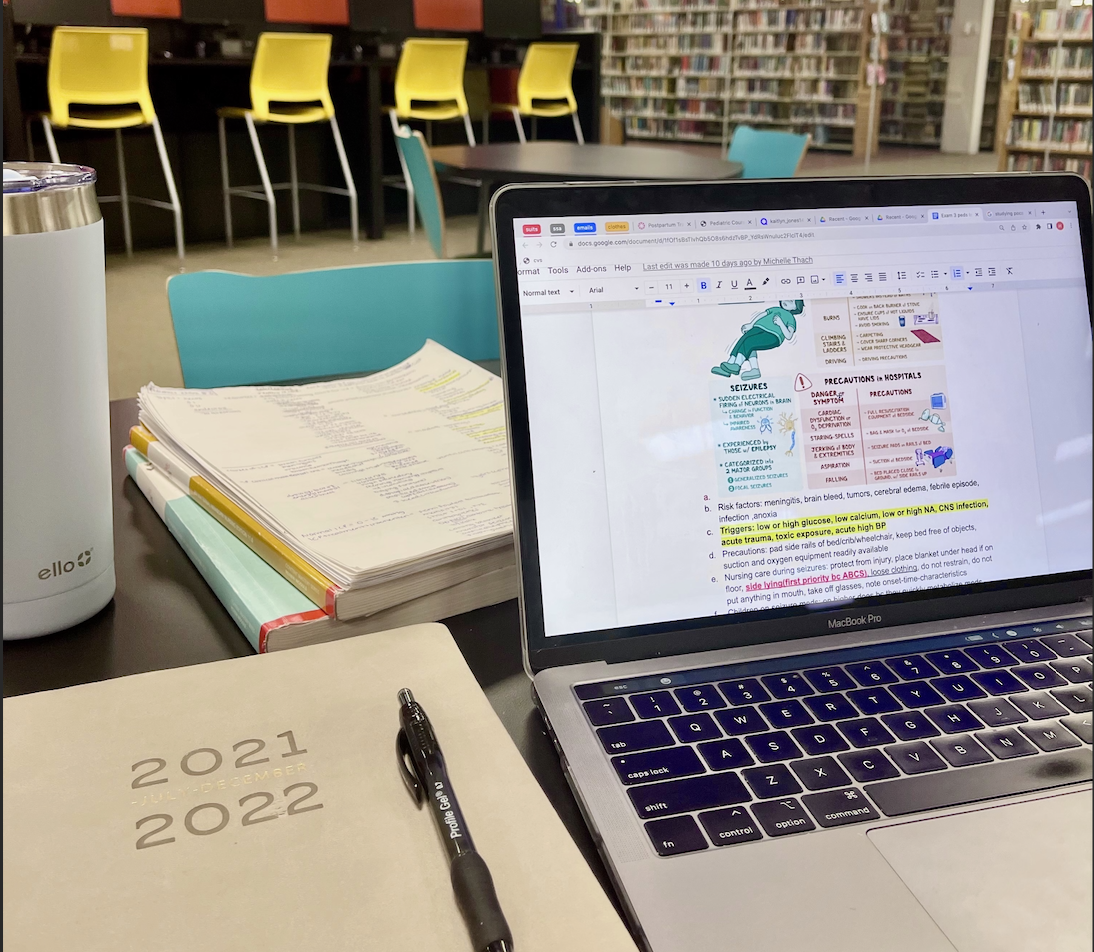
Study Smarter, Not Harder
Read Time:3 Minute, 36 Second
By: Jasmine Yasay
Study Tips for Students at Rutgers Camden:
- Different types of note-taking— https://e-student.org/note-taking-methods/
- Figure out what note-taking strategy works for you. Having good notes is important for studying. It took me a couple of trials and errors to figure out that Outline Note-taking is efficient for my studying. Here are a couple of examples to try out during each class and see which one sticks better for your study habits.
- Outline note-taking
- It stores information through a hierarchy. The main topic and indentation for the sub-topics with the descriptions underneath.
- Cornell note-taking
- This is more a concept form of note-taking. There are two columns (the “cue” and “note” column); then the third single bottom row records the summary notes.
- Outline note-taking
- Figure out what note-taking strategy works for you. Having good notes is important for studying. It took me a couple of trials and errors to figure out that Outline Note-taking is efficient for my studying. Here are a couple of examples to try out during each class and see which one sticks better for your study habits.
- Mind over matter
- I always like to compare studying to working out or any other strenuous activities. The first 10 minutes are brutal, but once you get into the groove it gets easier and easier, almost like a runner’s high. This is also where you have to self-discipline yourself. Motivation may not always be there and relying on that feeling to appear will only hinder your progress in studying.
- 45-15 minute rule
- A good study habit to have is using the 45-15 minute rule. I personally like to keep a timer right beside me while I’m studying and setting it around 45 minutes and taking 15-minute breaks. If that’s too long or too short for you, you can adjust it to your liking. Your brain can only take in so much before it goes in one ear and out the other. To make sure you concentrate the best you can take breaks in between studying.
- Reward yourself
- Within that 15-minute gap of studying, I like to take that time to grab a snack, go on a small walk, go outside, play with my dog, text back my friends, or go on social media. The options are endless, however, the main point is for you to do something that rewards your efforts.
- Find a study buddy
- Surrounding yourself with a good study group or even one studious friend is beneficial. You can hold one another accountable or bounce ideas off of each other, ask questions, and so much more.
- Find a good space
- Whether it is a quiet area like the library or a busy coffee shop, finding a good space that works for you is just as important as everything mentioned above. I personally love a good study group in the library’s private study rooms. However, due to COVID, a zoom meeting is just as efficient and time manageable.
- Using outside resources
- As a nursing student, sometimes lectures and books are not enough to understand a concept. Using websites like YouTube can help supplement learning materials to get the most out of lessons.
- Read the summary of the chapters
- Just like what the title states, study smarter, not harder. As a nursing student, some exams can cover up to 12 chapters. I don’t know about you, but I cannot get myself to read 12 chapters varying from 10-20 pages each and fully remember everything. Instead, reading the summary first gives you a better chance of grasping the essential concepts of each chapter.
- Manage your time
- Studying is also learning how to manage your time. I get it, we’re all busy. I have three jobs, and I am a full-time student. Luckily enough, one of my jobs allows me to sit down and do some homework in my free time which I am very fortunate to have. I know not many people have that advantage, however, on my other days, I make sure I set at least 1-2 hours a day of studying. I don’t allow myself to completely have my head stuck in school and reward myself by hanging out with friends and family on days when I can spare not studying.
- Find your niche
- Everyone is different. Finding your type of study habit is beneficial in the long run. Finding what type of learner you are is also important. I am personally an auditory and visual learner. There are many surveys to determine which type of learner you are.

